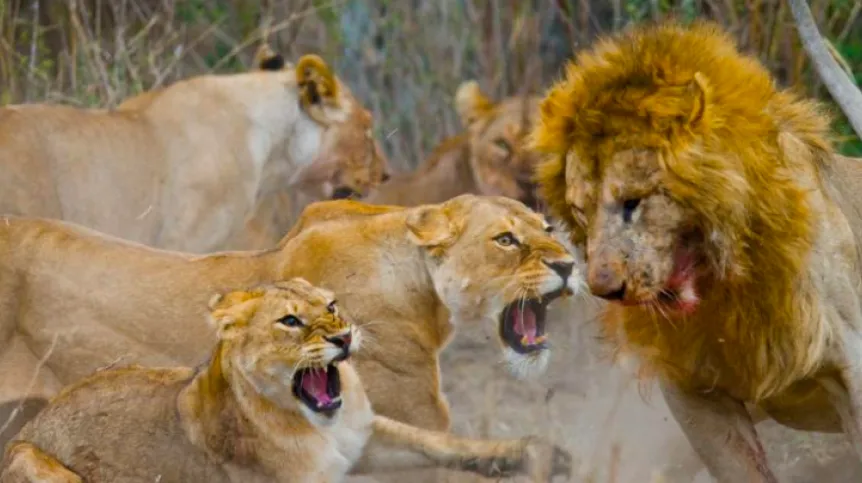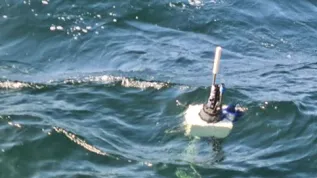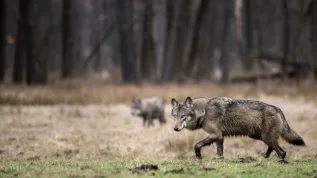
The human brain is genetically prepared to accept morality. But the moral compass is created by culture on this evolutionary basis, neurobiologist Dr. Paweł Boguszewski said during the debate organized during the Science Festival in Warsaw.
Researchers participating in the debate "Is morality is a result of evolution" discussed whether morality is written in the genome, or a result of culture.
Dr. Paweł Boguszewski from the Nencki Institute of Experimental Biology talked about the Yale experiment conducted to determine whether children - before the culture begins to shape them - have any inherent morality. Infants were shown a scene, in which a toy cat tried to open a box. Next to it were two toy dogs, differing only in shirt colour. One dog helped the kitten, and the other dog interfered. When the children were shown the two dogs, they were much more likely to chose the helpful one.
In another experiment, the child was given two types of crisps to choose from. Then the child would learn that the toy cat did not like the crisps the child had chosen. Once the child knew that the cat preferred different delicacies, the experiment with the cat opening the box and two dogs - nice and malicious - was repeated. In this situation the result changed: the child preferred the dog that prevented the cat from opening the box. "Are we, as a species, born with moral preferences? It turns out that we are" - commented Dr. Boguszewski.
In turn, a chemist, physicist, biologist Prof. Krzysztof Dołowy from the Warsaw University of Life Sciences recalled Stanley Milgram`s experiment from the 1960s. The respondents were asked to punish another person - a "student" - with increasing electric impulses to motivate that person to learn. In fact, the "student" only pretended to be shocked by the current, and the most important thing in the experiment was when the subject would object to the experimenter and withdraw from the experiment. According to Prof. Dołowy, only 15 percent subjects withdrew from the experiment. "In every nation, majority of people are capable of every monstrosity, if they are even slightly pushed to commit it" - commented Prof. Dołowy.
Biologist Dr. Maria Pawłowska gave an example from the animal world regarding the use of violence. She explained that male lions kill the young of other males to give their own young a better chance of survival. This is their reproduction model. "But nobody will say that they behave immorally" - she commented.
She said that there were various survival strategies in the animal world. Sometimes more, and sometimes less focussed on cooperation. An example of mammals very strongly focused on cooperation are naked mole-rats - rodents that live in underground colonies. According to the researcher, not all individuals breed. And the main task of individuals is to work for the benefit of the colony. She noticed that a serious threat to many naked mole-rats is that they can work themselves to death. The researcher argued that altruism is present not only in people.
According to Prof. Dołowy, sometimes cooperation is the most profitable strategy. He gave an example of a non-zero sum game. In the game, both sides bet money. If both sides betray the opponent, they both lose money. If only one of the players decides to betray, he will win his and his opponent`s money. However, if both parties cooperate, they get their money back, plus a bonus. The question is what strategy to adopt if there are many rounds. It turns out that a simple computer program gets the best results in the game: it applies the "eye for an eye" principle. In each subsequent round, it uses the same strategy its opponent used in the previous round. For each betrayal, it punishes the opponent with betrayal. And for each cooperation - its rewards the opponent with cooperation. Prof. Dołowy commented that computers that used this principle did not have moral principles. "It optimised profit". According to the scientist, it is similar with people. "Cooperation between people optimises profit" - he said.
Asked to summarise whether morality is the result of evolution, Dr Pawłowska pointed out that the cultural structure is superimposed over the biological foundation with the principles of cooperation or punishment. She noted that the idea of the punishing God appeared at a certain stage in the development of societies - when the gatherer-hunter groups were no longer sufficient for people. "Traditional communities that do not exceed a few dozen people do not have punishing gods, they do not need them" - she said. She gave the example that if someone robbed a neighbour in such a group, the neighbour would come and beat that person up. This ceased to be sufficient in growing communities and with the development of trade, where not everyone knew all persons, with whom they concluded transactions.
Pawłowska added that power structures would often instil new rules, describing them as "absolutely moral" or "absolutely immoral". Meanwhile, according to the biologist, these rules are tailored to the needs of specific groups or communities. "For example, the rule that Sunday is a holy day that should be celebrated is not an absolute moral principle" - she said.
Summing up the discussion, Dr. Boguszewski compared morality to language and pointed out that in the world people communicate in various languages. "We all have an inborn ability to learn languages. (...) Our brain is prepared to accept speech" - he said. According to him, it is similar with morality: some basic elements of morality are already present in people from the beginning. As he summarized, these are rules such as "cooperate with those who want to cooperate" or "punish those who do not want to cooperate" and "punish strangers". "In contrast, what we call a moral compass - what makes us I feel that something is good or bad - is something that culture creates on the evolutionary foundation" - he said. According to Boguszewski, morality is the result of both evolution and culture.
The Science Festival in Warsaw continues until September 30.
PAP - Science in Poland, Ludwika Tomala
lt/ agt/ kap/
tr. RL













